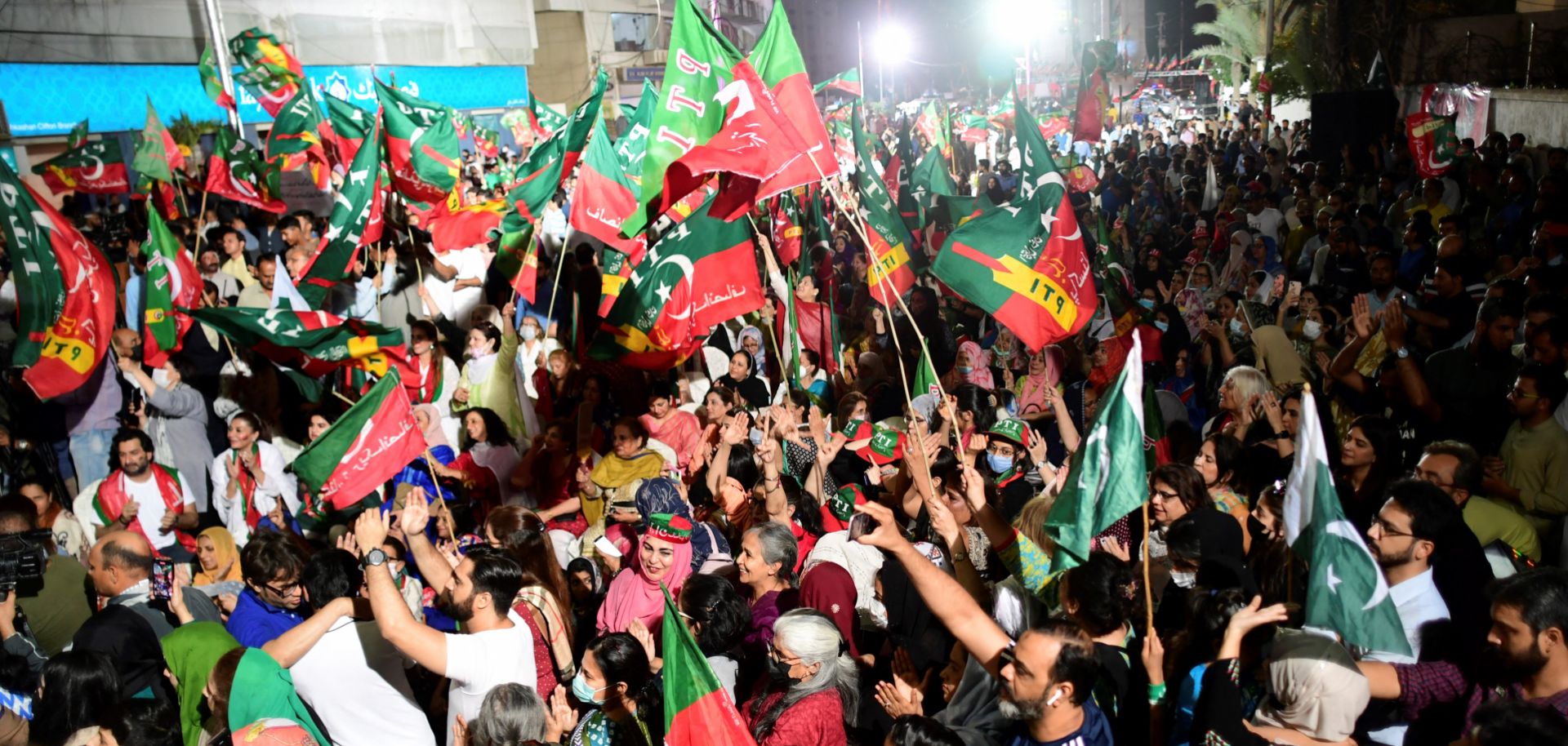GUIDANCE
Weighing the Outcomes of Pakistan's Political Crisis Ahead of a Pivotal Court Decision
Apr 6, 2022 | 20:15 GMT

Supporters of the ruling Pakistan Tehreek-e-Insaf (PTI) party take part in a rally in Karachi on April 1, 2022, after debate on a no-confidence motion against Pakistani Prime Minister Imran Khan was postponed.
(ASIF HASSAN/AFP via Getty Images)
Subscribe Now
SubscribeAlready have an account?
